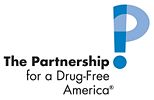Partnership for a Drug-Free America: Difference between revisions
imported>Drew Kunde No edit summary |
imported>Drew Kunde No edit summary |
||
| Line 20: | Line 20: | ||
The '''Partnership for a Drug-Free America''' or PDFA, is a not-for-profit organization that unites parents, teenagers, and scholars for the purpose of reducing the demand for narcotics among young people by using the various advertising outlets of the mass media to change their attitudes towards illegal drugs | The '''Partnership for a Drug-Free America''' or PDFA, is a not-for-profit organization that unites parents, teenagers, and scholars for the purpose of reducing the demand for narcotics among young people by using the various advertising outlets of the mass media to change their attitudes towards illegal drugs. | ||
==History== | ==History== | ||
Revision as of 22:28, 28 September 2009
This page was started in the framework of an Eduzendium course and needs to be assessed for quality. If this is done, this {{EZnotice}} can be removed.
| Microsoft Corporation | |
|---|---|

| |
| Website | www.drugfree.org |
| Ownership type | Public, NASDAQ:MSFT |
| Founded | 1975, by Bill Gates |
| Headquarters | Redmond , Washington United States |
| Industry | Computers |
| Product/Service | Computer and Consumer Products |
The Partnership for a Drug-Free America or PDFA, is a not-for-profit organization that unites parents, teenagers, and scholars for the purpose of reducing the demand for narcotics among young people by using the various advertising outlets of the mass media to change their attitudes towards illegal drugs.
History
One of the Partnership's earliest strategies was based on a concept put forward by Dr. Mitchell Rosenthal who was at the time president of the Phoenix House Treatment Program in New York, NY. He thought that the high level of drug-use and addiction in the 1980s was due to the normalization of narcotics since the 1960s. according to Dr. Rosenthal in order to make progress in the war on drugs it was necessary to reverse this normalization.
Although founded in 1986 the partnership did not completely emerge into the public eye until 1987 when it put out a broadcast called “This is Your Brain on Drugs.” It made even more progress when a couple of Public Service Announcements (PSA) were praised in a speech by President George H. W. Bush in late 1989.
Founding
The partnership was founded in 1986 by Richard T. O’Reilly as a project of the American Association of Advertising Agencies.
Current objectives and activities
This section should discuss the group's current initiatives and tactics for influencing political outcomes (which may or may not be very different from its original goals and modus operandi).[1]
Organizational structure
This section should describe the group's organizational structure, including its principal leadership positions and their current incumbents.[2]
Achievements
This section should recount the group's major achievements, including but not limited to legislative and/or legal victories.[3]
Public perception and controversies
In developing this final section, be especially careful about maintaining a neutral stance and tone. Your aim should be to document the public's perception of your group and/or any controversies in which it is or has been embroiled without weighing in with your own opinion about them.
References
http://www.drugfree.org/Portal/About/AnnualReport/Download_the_2001-2002_Annual_Report http://www.drugfree.org/
- ↑ "The Things We Do and How We Do Them," Interest Group X. 2006. Retrieved July 21, 2009 from http://www.interestgroupx.org/things_we_do.html
- ↑ First Author and Second Author, "The Organizational Structure of Interest Group X," Fake Journal of Nonexistent Scholarship 36:2 (2015) pp. 36-52.
- ↑ "Major Success for Interest Group X," Anytown Daily News, January 1, 2015, p. A6.